
A strikingly inventive work from Un Drame Musical Instantané, as Jean-Jacques Birgé, Bernard Vitet, and Francis Gorgé blend synthesizers, trumpet, guitar, voice, and unconventional instrumentation in a satire of television and religion, merging free improvisation, jazz, electronics, and contemporary composition into a provocative and unclassifiable sonic experience.
In Stock
Quantity in Basket: None
Log In to use our Wish List
Shipping Weight: 5.00 units
EU & UK Customers:
Discogs.com can handle your VAT payments
So please order through Discogs
Sample The Album:
Jean-Jacques Birge-synthesizer, voice, zapping, field recording, flute, percussion
Bernard Vitet-trumpets, voice, reed, piano, violin, flute, percussion
Francis Gorge-synthesizer, guitar, flute, percussion
Click an artist name above to see in-stock items for that artist.
UPC: 794881429325
Label: GRRR
Catalog ID: GRRR 2015
Squidco Product Code: 35574
Format: CD
Condition: New
Released: 1989
Country: France
Packaging: Jewel Case
Recorded at Studio GRRR, in Boulogne-Billancourt, France.
"A satire about television (Zappeurs-Pompiers 2) and religion (La calotte). The cover by Italian cartoonist Massimo Mattioli (Squeak the mouse) is as crazy as the album."-GRRR
"Jean-Jacques Birgé, Bernard Vitet and Francis Gorgé consider their albums as works in themselves, finished objects, in opposition to their live shows whose challenge is to constantly renew themselves. Their sources are to be sought as much in rock (from which come the synthesist Birgé and the guitarist Gorgé, authors of the cult album Défense de), jazz (the trumpeter Vitet founded the first free jazz group in France with François Tusques, the Unit with Michel Portal, played with many American jazzmen...), contemporary music or cinema and the daily reading of newspapers, hence their concept of "music about". They are responsible for the return to France of the cine-concert3 with 24 silent films in the repertoire, the most performed of which were The Cabinet of Dr. Caligari (1920) by Robert Wiene, The Three-Sided Mirror (1927) and The Fall of the House of Usher (1928) by Jean Epstein, The Passion of Joan of Arc (1927) by Carl T. Dreyer, Man with a Movie Camera (1929) by Dziga Vertov, Money (1928) by Marcel L'Herbier...History
After having been ardent defenders of free improvisation, from 1981 to 1986 they set up an orchestra of 15 musicians, and from 1989 onwards they launched into multimedia shows with imposing devices and sets (live zapping on a big screen, fireworks, choreographies...), but their most convincing will remain essentially radiophonic, like "blind cinema". The Drama, as it is customary to evoke them, will be able to marry acoustic and electronic instruments in real time as well as an original violin designed and produced by Vitet (reed trumpet, variable tension double bass, violin and viola with nuts, giant balafon, keyboard of frying pans, files or flower pots, plexiglass flutes, pyrophone, etc.).
After the departure of Francis Gorgé in 1992, Birgé and Vitet will continue to record and perform with musicians close to the "family" such as the percussionist Gérard Siracusa. The group, which has always managed to maintain its independence by controlling its means of production (Studio and Disques GRRR4), will disband in 2008. Since 2010, the site drame.org offers more than a hundred hours of unreleased material for free listening and downloading.
After the death of Bernard Vitet on July 3, 2013, Un drame musical instantanee decided to reform with Birgé, Gorgé, Hélène Sage and various guests, and in 2022 Birgé and Gorgé resumed the Drama with the writer Dominique Meens or Amandine Casadamont on the turntables."-Wikipeda
Artist Biographies
• Show Bio for Jean-Jacques Birge "Music composer, film director, multimedia author, sound designer, writer, Jean-Jacques Birgé considers music essentially in the audio-visual relationship, or at least in its confrontation with other forms of artistic expression. Founder of Disques GRRR, he was one of the first synthesists in France in 1973, and with Un Drame Musical Instantané the precursor of the return to the cine-concert in 1976. If his first electronic work dates from 1965, he composes as well for symphonic orchestras that he improvises freely with musicians from the most diverse backgrounds. For his "radiophonic" creations and his multimedia shows (live zapping on the big screen, fireworks, choreographies...), improvisation and preliminary writing merge, the original electroacoustic treatments are integrated with traditional instruments to create evocative musical fictions that he calls musique à propos. From 1995, he became one of the most popular sound designers in multimedia and a specialist in interactive musical composition, seeking to deepen the effects of meaning and develop an ever-wider range of emotions. As part of his work on major exhibitions, he recently worked at the Louvre Museum, the Cité des Sciences et de l'Industrie, the Grand Palais, the Panthéon, the Palais de Tokyo, the ZKM... Alongside around fifty vinyls and CDs, his website drame.org offers 105 unreleased albums (191 hours!) for free listening and downloading. He has been running a daily, activist and supportive blog for 20 years and gives conferences on the relationship between sound and image." ^ Hide Bio for Jean-Jacques Birge • Show Bio for Bernard Vitet "Bernard Vitet (26 May 1934 - 3 July 2013) was a French trumpeter, multi-instrumentist and composer, co-founder of the first free jazz band in France (1964) together with François Tusques, Michel Portal Unit (1972) and Un Drame Musical Instantané with Jean-Jacques Birgé and Francis Gorgé in 1976. Born in Paris, France, Vitet was involved in the early fusion of jazz and contemporary music with Bernard Parmegiani and Jean-Louis Chautemps. In the 1960s, he accompanied singers such as Serge Gainsbourg, Barbara, Yves Montand, Claude François, Brigitte Bardot, Marianne Faithfull, Colette Magny, and Brigitte Fontaine. He played with jazz musicians such as Lester Young, Archie Shepp, Anthony Braxton, Don Cherry, Chet Baker, the Art Ensemble of Chicago, Steve Lacy, Gato Barbieri, Jean-Luc Ponty, and Martial Solal. In his early years, he performed with Django Reinhardt, Gus Viseur, Eric Dolphy, and Albert Ayler. Under his own name he recorded Surprise-partie avec Bernard Vitet (on trombone!), La Guêpe on texts by Francis Ponge, Mehr Licht!, and about 200 other records with the aforementioned, plus Jean-Claude Fohrenbach, Georges Arvanitas, Sunny Murray, Michel Pascal, Alan Silva, Alexander von Schlippenbach, Hubert Rostaing, Alix Combelle, Ivan Jullien, Christian Chevalier, Jef Gilson, Jack Diéval, Jac Berrocal, Hélène Sage and 17 albums with Un drame musical instantané. In 1995, he co-signs the songs of Carton with Birgé, with whom he collaborates on music for films, exhibitions, and CD-Roms. Vitet invented instruments such as a reed trumpet, a multiphonic French horn, a variable tension double-bass, the dragoon which is a giant balafon with frying pans and flower pots keyboard, a clever system of modal clocks, and astonishing musical objects for Georges Aperghis, Tamia, and Françoise Achard. Besides trumpet, he sang and played flugelhorn, piano and violin. He composed theatre music for Jean-Marie Serrault, and for the films (Les coeurs verts by Édouard Luntz, L'ombre de la pomme by Robert Lapoujade with Jean-Louis Chautemps, Bof by Claude Faraldo in collaboration with Jean Guérin, and La femme-bourreau by Jean-Denis Bonan. From 1976 to 2008, he devoted himself primarily to Un Drame Musical Instantané with Jean-Jacques Birgé, improvising and composing hundreds of pieces together, experimental essays as well as symphonic pieces, songs as well as music for films. Un D.M.I., as a trio or with their 15-piece orchestra, presented multimedia shows involving cinema, video, literature, dance and new technologies." ^ Hide Bio for Bernard Vitet • Show Bio for Francis Gorge Francis Gorgé, aka Frank Bugs, is a French composer and virtuoso guitarist, born 1953 in Paris. He is known for his work with Jean-Jacques Birgé on the GRRR and Souffle Continu labels. ^ Hide Bio for Francis Gorge
2/7/2025
Have a better biography or biography source? Please Contact Us so that we can update this biography.
2/7/2025
Have a better biography or biography source? Please Contact Us so that we can update this biography.
2/7/2025
Have a better biography or biography source? Please Contact Us so that we can update this biography.
Track Listing:
1. Neige 03:49
2. L'improbable scenario 05:35
3. Sacree soiree 08:14
4. Raid sur le P.A.F. 05:14
5. Opera-savon 04:04
6. L'ai-je bien descendu 08:36
7. Des haricots la fin 08:48
8. The Last Word 03:12
9. Le chemin hante 02:33
10. Délits d'inities 06:26
11. Cul par-dessus tete 05:14
12. Rupture d'anevrisme 04:16
13. L'odeur du cirque 02:10
Improvised Music
Compositional Forms
Electro-Acoustic
Electro-Acoustic Improv
European Improvisation, Composition and Experimental Forms
Trio Recordings
RIO (Rock in Opposition)
Electro-Acoustic
Organized Sound and Sample Based Music
Electroacoustic Composition
New in Improvised Music
Recent Releases and Best Sellers
Search for other titles on the label:
GRRR.


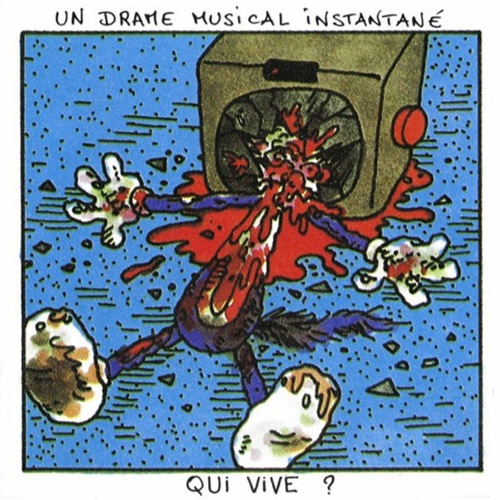



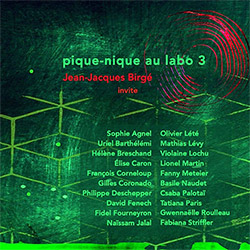
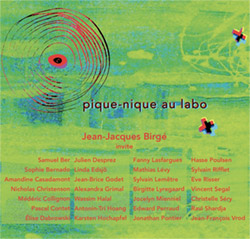



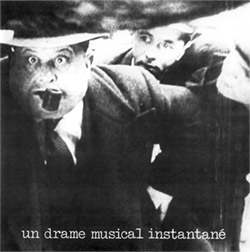




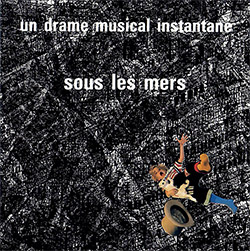
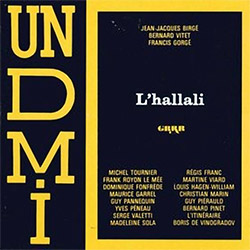

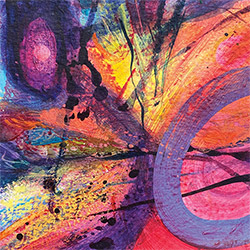




![TOC / Paulina Owczarek: Psychedelic Jelly [VINYL]](https://www.teuthida.com/productImages/misc4/35775.jpg)
![Kesherul Neg Pineg: The Book Of Pig [VINYL]](https://www.teuthida.com/productImages/misc4/35776.jpg)
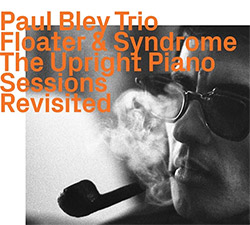

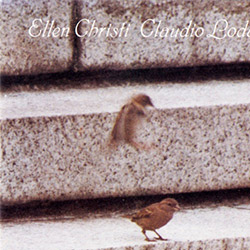


![AHC (Alexander Cooper): Lase [2 CDs]](https://www.teuthida.com/productImages/misc4/35754.jpg)
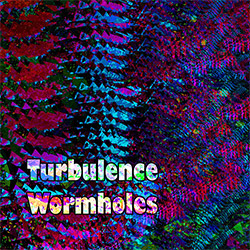
![Lacy, Steve Three : Live Lugano 1984 - First Visit [CD + 2 POSTCARDS]](https://www.teuthida.com/productImages/misc4/35624.jpg)



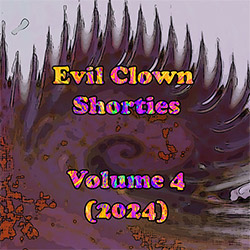
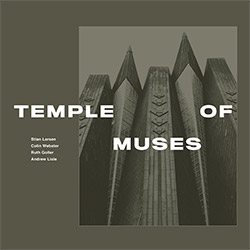




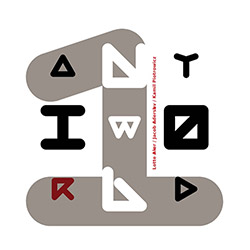
![Tusques, Francois / Sunny Murray 38: Intercommunal Dialogue 1&2 [2LPS w/ DOWNLOAD]](https://www.teuthida.com/productImages/misc4/35475.jpg)

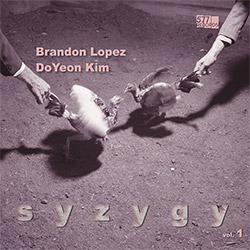


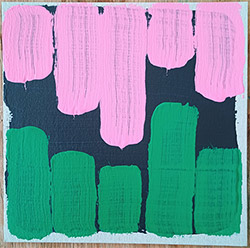
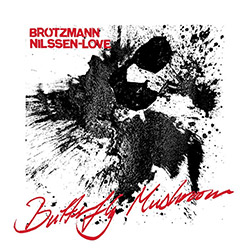
![Brotzmann, Peter / Paal Nilssen-Love: Butterfly Mushroom [VINYL]](https://www.teuthida.com/productImages/misc4/35541.jpg)

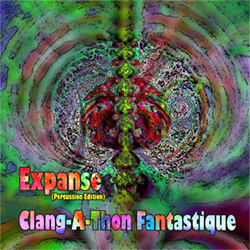
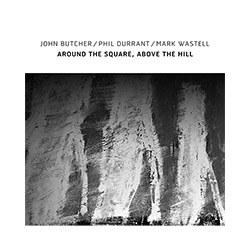
![Allen, Clifford: Singularity Codex: Matthew Shipp On Rogueart [BOOK]](https://www.teuthida.com/productImages/misc4/33454.jpg)


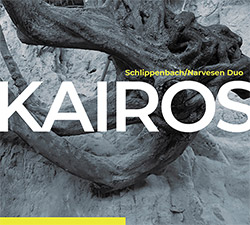

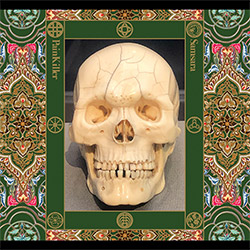
![Sun Ra: Lanquidity (DELUXE EDITION) [VINYL]](https://www.teuthida.com/productImages/misc4/35234.jpg)
![Sun & Rain (Morgan / Laplante / Smiley / Nazary): Waterfall [VINYL]](https://www.teuthida.com/productImages/misc4/35604.jpg)
![Fagaschinski, Kai / Yan Jun : Graveyard Processions [VINYL w/ DOWNLOAD]](https://www.teuthida.com/productImages/misc4/35474.jpg)
![Brant, Cody / Carl Kruger: Smoke Detail [CASSETTE w/ DOWNLOAD]](https://www.teuthida.com/productImages/misc4/35551.jpg)
![Weirs and Magic Tuber Stringband : The Crozet Tunnel [CASSETTE + DOWNLOAD]](https://www.teuthida.com/productImages/misc4/35570.jpg)
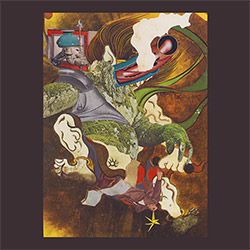
![Abcess Grenk: Erguss Von Licht [CASSETTE w/ DOWNLOAD]](https://www.teuthida.com/productImages/misc4/35560.jpg)

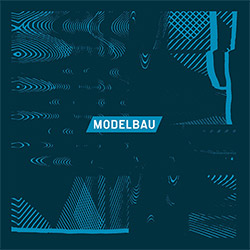
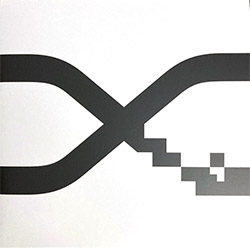
![Alva Noto: Xerrox Vol. 5 [VINYL 2 LPs]](https://www.teuthida.com/productImages/misc4/35359.jpg)
![Weston, Matt: Communism Has Appeared On The Scene [VINYL 2 LPs]](https://www.teuthida.com/productImages/misc4/35546.jpg)

![Jeck, Philip: rpm [2 CDs]](https://www.teuthida.com/productImages/misc4/35455.jpg)






![DNS: Taking Big Bites Of The Khandas Three Cafes Deep [2 CDs]](https://www.teuthida.com/productImages/misc4/35334.jpg)




![Lonsdale, Eden: Dawnings [2 CDs]](https://www.teuthida.com/productImages/misc4/35480.jpg)







![Sanna, Claudio: Compositori Sardi Contemporanei II [2 CDs]](https://www.teuthida.com/productImages/misc4/35317.jpg)







![Zurria, Manuel: Fame di Vento [3 CDs]](https://www.teuthida.com/productImages/misc4/35167.jpg)

![Granberg, Magnus / Nattens Inbrott / Skogen: Holde Traume, Kehret Wieder! [2 CDs]](https://www.teuthida.com/productImages/misc4/35038.jpg)
![Frey, Jurg: Outermost Melodie [2 CDs]](https://www.teuthida.com/productImages/misc4/35039.jpg)

![Pavone, Jessica: Reverse Bloom [VINYL]](https://www.teuthida.com/productImages/misc4/34895.jpg)




![Modney (Modney / Wooley / Gentile / Roberts / Pluta / Symthe / ...): Ascending Primes [2 CDs]](https://www.teuthida.com/productImages/misc4/34852.jpg)




![Elephant9 : Mythical River [VINYL]](https://www.teuthida.com/productImages/misc4/34624.jpg)



![Elephant9 with Terje Rypdal: Catching Fire [VINYL 2 LPs]](https://www.teuthida.com/productImages/misc4/35355.jpg)
![Deerlady (Obomsawin, Mali / Magdalena Abrego): Greatest Hits [VINYL]](https://www.teuthida.com/productImages/misc4/34876.jpg)




![Haino, Keiji: Black Blues [2 CDs]](https://www.teuthida.com/productImages/misc4/35109.jpg)



![Surplus 1980: Illusion of Consistency [CD]](https://www.teuthida.com/productImages/misc4/35069.jpg)
![Staiano, Moe: Away Towards the Light [VINYL + DOWNLOAD]](https://www.teuthida.com/productImages/misc4/35037.jpg)



![Caveira (Gomes / Sousa / Abras / Ferrandini): Ficar Vivo [VINYL]](https://www.teuthida.com/productImages/misc4/34643.jpg)
![Gregg, J. J. / David Van Auken: Lunar Prairie [CD w/ DOWNLOAD]](https://www.teuthida.com/productImages/misc4/34611.jpg)

![Coultrain: Mundus [VINYL]](https://www.teuthida.com/productImages/misc4/32439.jpg)
![Coley, Byron: Dating Tips for Touring Bands [VINYL]](https://www.teuthida.com/productImages/misc4/17906.jpg)

![Lost Kisses: My Life is Sad & Funny [DVD]](https://www.teuthida.com/productImages/misc4/lostKissesDVD.jpg)